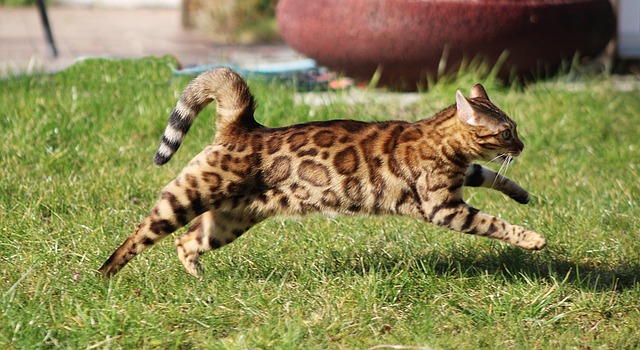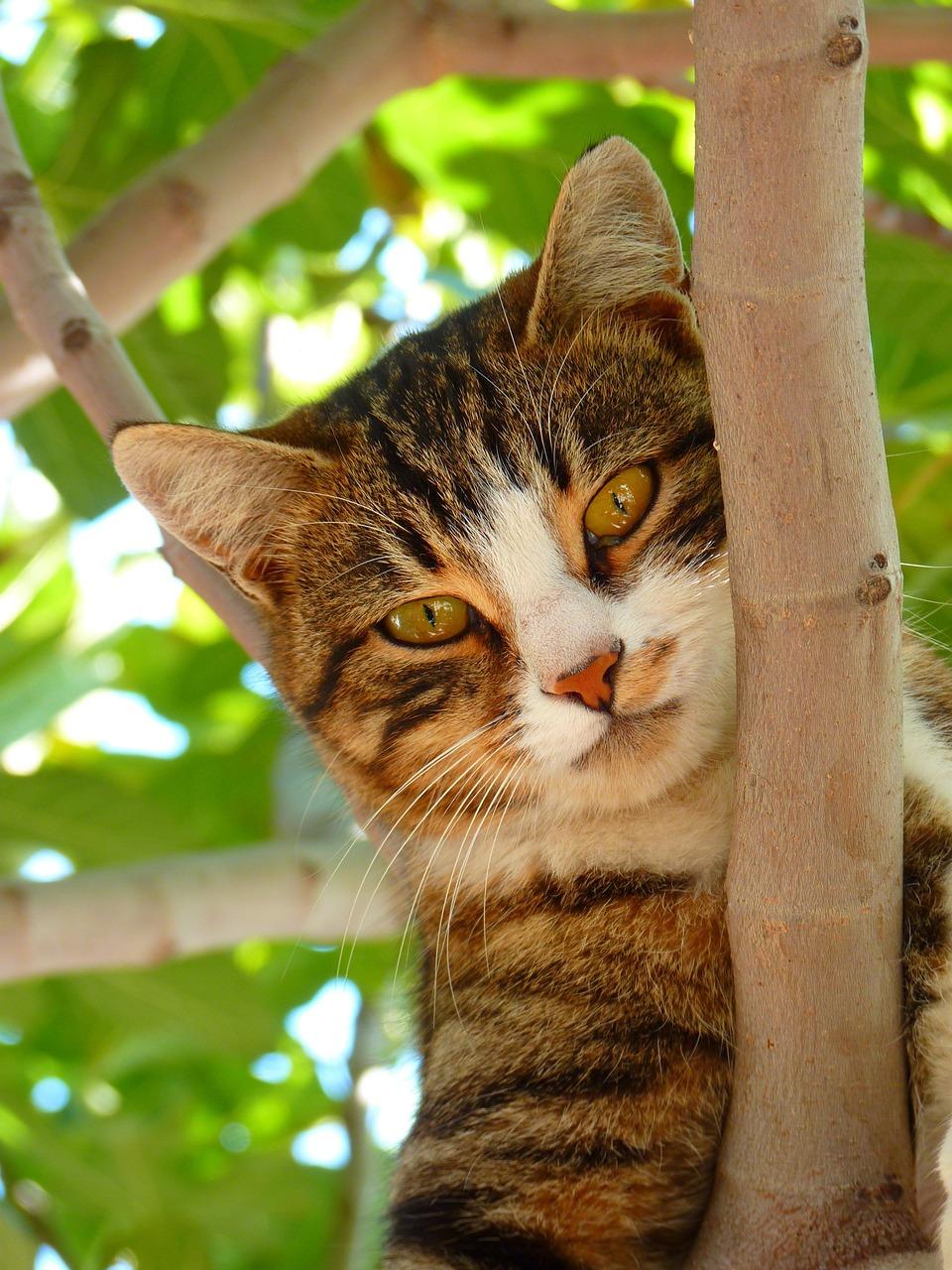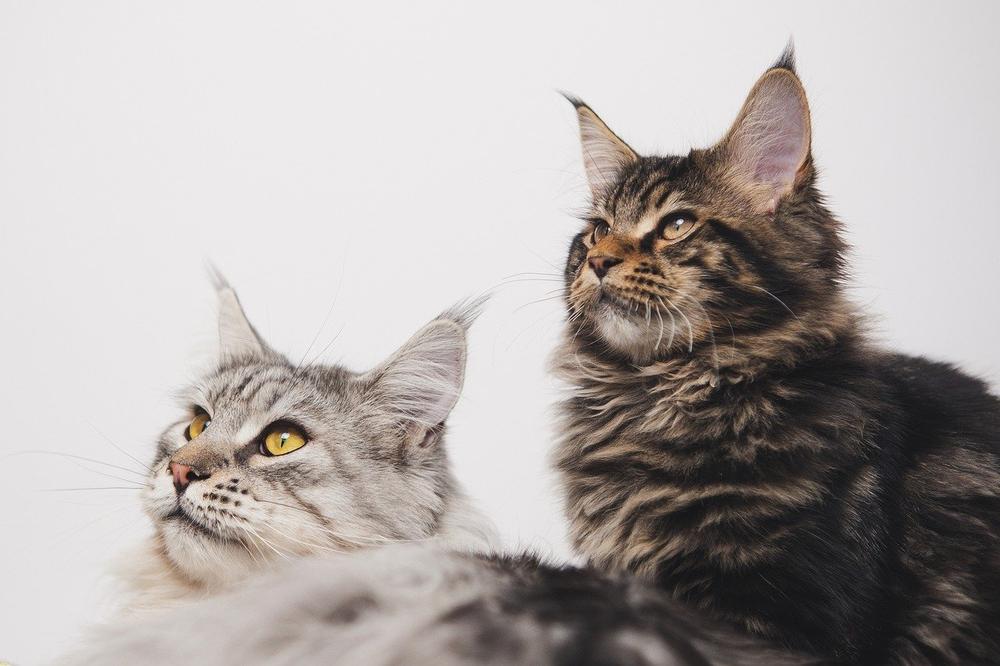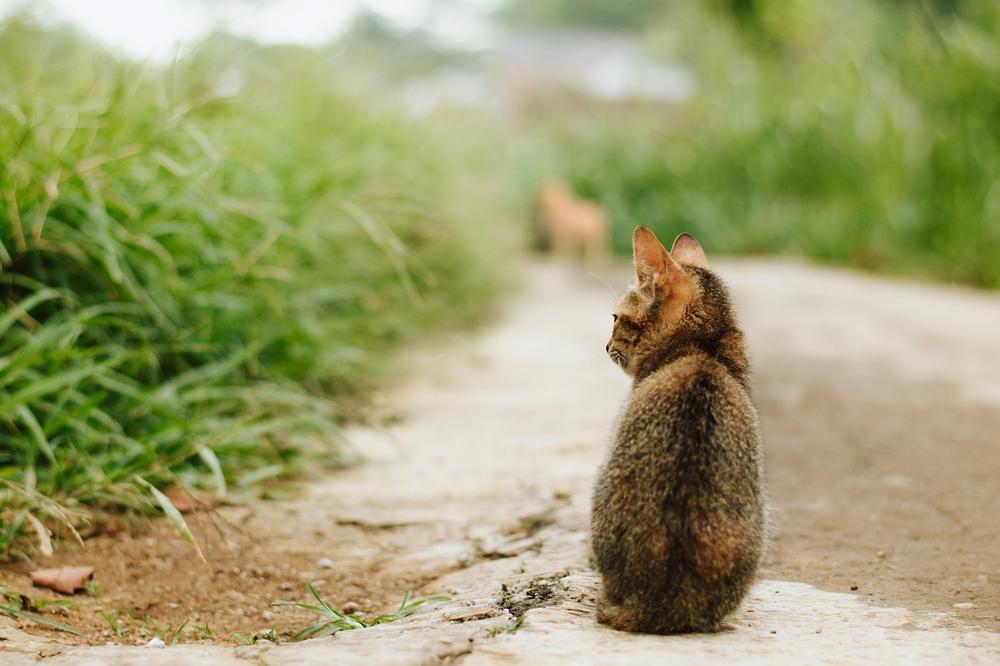Why Do Cats Run After Pooping? (Is It a Normal Behavior?)

Ever wondered why your feline friend takes off like a bolt of lightning after doing their business?
Got you scratching your head, huh? 🤔
Well, you're not alone, my friend.
So many cat guardians find themselves wondering, "What's up with that?!"
But fear not, dear reader, today we're diving deep into the mysterious world of why cats run after pooping.
Let's uncover the truth and put your worried mind at ease.
Ready?
Let's begin.
Cats Zipping Around the House After a Successful Litter Box Trip Is Normal
Cats often sprint through the house after using the litter box, a behavior known as poo-phoria. It could be due to the pleasure they feel from stimulating their vagus nerve or a way to burn off excess energy, particularly in young cats and kittens.
Cats race out of the litter box like they've seen a ghost. It's normal.
This behavior, known as "poo-phoria," is common among cats.
Scientists haven't figured it all out yet, but there are a couple of theories.
One idea is that cats feel pleasure after pooping.
It stimulates their vagus nerve and gives them euphoria. They express this joy with a lightning-fast sprint through your home. 😺

Another possibility is that post-poop zoomies help cats burn off pent-up energy.
This is especially true for young cats and kittens who have endless amounts of energy.
Cats are most active during dawn and dusk, so if they're tearing through the house in the evening after using the litter box, it could be zoomie fever.
We may never fully understand why cats do what they do, but it keeps life interesting.
Main points I'll expand upon further down this article:
- Cats may associate their litter box with discomfort or pain.
- Sudden strange behavior or avoidance of the litter box may indicate an underlying issue.
- Older cats with hyperthyroidism may exhibit increased activity and hyperactivity.
- Running after pooping could indicate health problems like infection or constipation.
- Checking for abnormal stools or blood in the urine is important.
- Passing a large stool can stimulate the vagus nerve, causing dizziness and zoomies.
- Cats have an instinct to avoid their own scent after eliminating.
- Running after pooping may help release extra energy triggered by the vagus nerve.
- Zoomies can be caused by a dirty litter box or discomfort.
- Engage in playtime to bond with your cat and tire them out.
But what if your cat's post-poop sprint goes beyond just playful exuberance?
Well, there may be some underlying reasons for this behavior that you should be aware of.
In the next section, we will explore possible medical conditions and sensitivities that can contribute to these zoomies.
Trust me, you don't want to miss out on this information because it could potentially be the key to understanding your feline friend better and ensuring their well-being!
Potential Medical Causes for Cat Zoomies After Litter Box Use
When your cat goes crazy after using the litter box, it might be more than just their usual post-potty sprint.
Here are a few possible medical reasons why:
- Some cats have a super-sensitive sniffer that gets triggered by certain smells, whether it's due to medical stuff or dietary sensitivities. So, it's possible that pooping makes them extra uncomfortable.
- If your feline friend starts acting strange or avoids the litter box after doing their business, it could mean they're dealing with some underlying pain. It's best to consult a vet and get to the bottom of it.
- Elderly cats with hyperthyroidism tend to amp up their activity levels and go full throttle after taking care of business in the litter box.
- Running around like a madman (or madcat) post-poop could also hint at various health issues like infections, inflammation, or constipation. Keep an eye out for abnormal stools or blood in the urine - those might provide clues.
- Believe it or not, passing a big ol' turd can actually stimulate a nerve called the vagus nerve. This might cause mild dizziness and trigger the infamous "zoomies."
Finding the precise explanation for this wild behavior can be tricky, so sometimes you just gotta accept that it's one of life's mysteries, my friend. 😀

However, if you are still curious about why your cat scratches the floor after using the litter box and want to find potential reasons and solutions, then my blog post Why Does My Cat Scratch the Floor After Using the Litterbox is here to help.
In it, I explore various factors that may contribute to this behavior and offer practical advice for addressing the issue.
So, if you're looking for answers, be sure to check it out!
The Zigzag Survival Instincts in Cats After Using the Litter Box
The zigzag running pattern in cats: a survival instinct
You know, it's fascinating how cats have evolved with incredible survival instincts.
Even after being domesticated for centuries, some of their primal behaviors still shine through.
One such behavior is their love for the zigzag after using the litter box.
A survival tactic from their wild past
So here's the deal, back when cats were wild creatures, they had to be constantly alert. And after doing their business, they developed this clever zigzag running pattern to confuse potential predators that might track their scent.
It was a smart move to stay safe!
Cleaning and releasing energy
Nowadays, even though cats are no longer in the wild, this zigzagging behavior hasn't entirely vanished.
Some experts think it could be linked to their independent nature and innate cleanliness.
Let me tell you something interesting - mother cats used to clean their kittens after pooping, so this behavior may come from that instinct.
But wait, there's more!
Running after pooping might also help cats release any extra energy stimulated by their vagus nerve.
So, you see, this quirky habit serves multiple purposes for our feline friends.
And there you have it – a little insight into the zigzag survival instincts of cats after using the litter box.
It just goes to show how deeply ingrained their wild past is within them, even in the coziest of homes.
Furthermore, if you're intrigued by the behaviors and instincts of your furry feline companion, I invite you to delve deeper into the topic of why cats exhibit certain habit streaks.
For a comprehensive understanding of why your cat keeps pooping on the floor in the same spot and practical solutions to address this issue, I highly recommend checking out my article My Cat Keeps Pooping on the Floor in the Same Spot.
Discover the insightful secrets and tips that can help you maintain harmony in your home.
The Role of Litter Box Hygiene in Cat Zoomies After Pooping
When it comes to cats and their pooping habits, you need to prioritize litter box hygiene.

Here's what you can do to keep the litter box in top shape:
- Clean it regularly: Cats like things tidy, so scoop that litter box at least once a day. That way, you avoid any mess or stinky smells that could put your cat off from using it properly.
- Choose the right type of litter: Cats are picky about their litter. Try out different ones until you find the perfect match for your feline friend. And remember, stay away from scented litters because they can irritate your cat's sensitive nose.
- Provide multiple litter boxes: If you have more than one cat, make sure each has its own litter box. This solves any territorial issues and prevents overcrowding.
- Think about where you put the litter box: Cats appreciate privacy, so don't place their litter box in a crowded or noisy spot. Find a quiet and secluded area that your cat feels comfortable in.
Keeping the litter box clean is a vital part of preventing unwanted behaviors such as perching on the edge after pooping.
By following these tips, you'll create a clean and inviting space for your furry companion.
And now, let me share some additional strategies that can help redirect your cat's energy after they finish their business...
How to Deal With Cat Zoomies After Pooping
After your cat uses the litter box, engage them in interactive playtime.
This redirects their energy and gives a positive focus to those post-poop zoomies.
By playing with your cat in short bursts, you strengthen the bond between you while providing an outlet for their excitement.
Before bedtime, tire them out through play.
This helps discourage early morning or late-night zoomie sessions.
To promote better sleep, consider feeding your cat later in the evening. Throughout the day, make interactive toys and food puzzles available to prevent pent-up energy.
In summary, interactive playtime provides an engaging and satisfying alternative for your cat's post-litter box antics.
And that wraps up today's article.
If you wish to read more of my useful articles, I recommend you check out some of these: Why Does My Cat Wag Her Tail While Purring, Why Do Female Cats Scream When They Mate, Why Does My Cat Howl Before After Using the Litter Box, Why Does My Cat Purr Constantly, and Why Does My Cat Scratch the Window
Talk soon,
-Sarah Davis